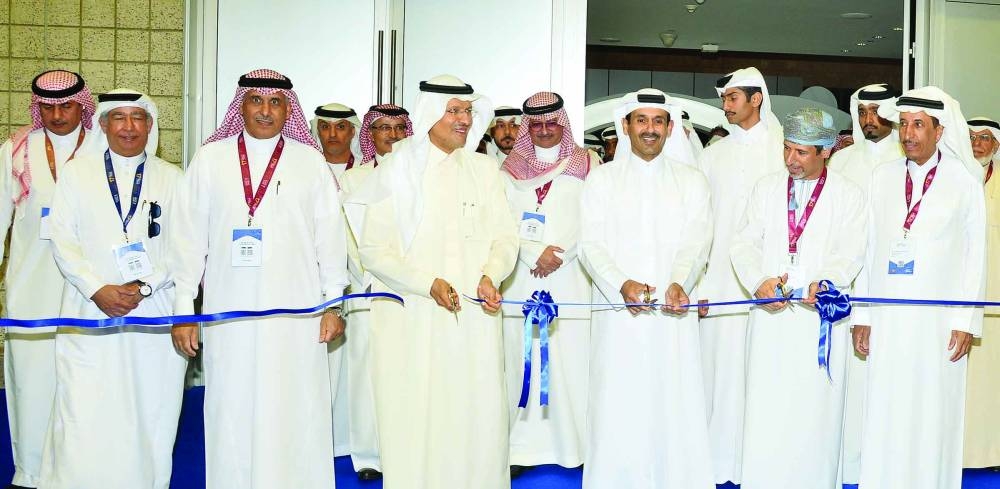Qatar has suggested three point-agenda, which includes greater investment in energy efficiency and low carbon innovation and coordinated policies and incentives, for equitable, secure and sustainable energy transition, which not only protects earth but also propels economic growth.
This suggestion was made by HE Saad bin Sherida al-Kaabi, Minister of State for Energy Affairs, at the ministerial session of the 17th Gulf Petrochemicals and Chemicals Association (GPCA) forum in the presence of Abdulaziz bin Salman al-Saud, Minister of Energy, Saudi Arabia; and Salim bin Nasser bin Said al-Aufi, Minister of Energy and Minerals, Oman.
Hamad Rashid al-Mohannadi, former general manager, Qatar Petrochemicals Company (QAPCO), was chosen for the fifth GPCA legacy award in recognition of extraordinary contributions to foster and strengthen the chemical industry.
The forum featured an exhibition that showcased new projects, industry journey, youth pavilion, sustainability district, cultural majlis and publications.
Highlighting that secure, equitable sustainable energy transition will not only help protect the planet but also provide economic growth; al-Kaabi said “to achieve this goal, we need to remain focused on three important areas that are essential in energy transitioning.”
The first and foremost, according to him, was the greater investment in energy efficiency and low carbon innovation.
This includes renewable energy integration, carbon capture and sequestration, low carbon solutions for reduced greenhouse gas emissions, and the carbon intensity in the chemical manufacturing, he said.
Other areas include optimising resources use, waste reduction, waste management and developing circular economies through improving recycling and the reuse of materials.
“We need coordinated policies and incentives to support the petrochemical industry’s success,” al-Kaabi said.
Terming the third enabler as awareness; he said it was not fair to put the onus on energy producers alone as there was a need for the real story to be told within workforce, across societies and among consumers about the critical role chemical industries plays in bettering lives worldwide.
In Qatar, the growth and evolution of petrochemical industry has been on a steady path of success, al-Kaabi said, adding the country is building the world’s largest blue ammonia plant with annual 1.2mn tonnes capacity.
“This plant will be most sustainable facility of its kind. As part of this project, we are implementing CCS technologies to capture and sequester 1.2mn tonnes of carbon dioxide. Furthermore, the electricity for this project comes from a solar power plant currently under construction,” he said.
He reminded that QatarEnergy in partnership with Chevron Phillips recently announced the start of the construction of two ethane crackers with a capacity of more than 2mn tonnes per annum each, one in Qatar and one in the US. The expected start is before the end of 2026, he added.
The Saudi oil minister said the demand for petrochemicals is expected to grow by more than 50% by 20240 with demand for basic chemicals such as ethylene and propylene slated to expand more than 60%, quoting market report and analysts.
The sector is also advancing through innovative technologies to maximise the yield of crude oil, he added.
Qatar suggests three-pointagenda for equitable, secureand sustainable energytransition

Related tags :


